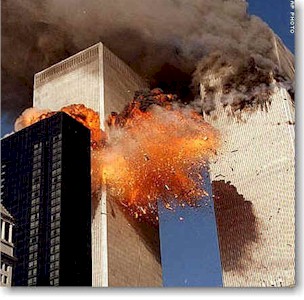Friday, September 30, 2005
Thursday, September 29, 2005
High (Court) Odds
Wednesday, September 28, 2005
Pick 3
1. Frances Frago Townsend - She's Bush's current Homeland Security advisor and a lifetime government lawyer/prosecutor who formerly held several high positions at the Department of Justice. As one of Bush's closest confidants, she has won the President's deep respect and trust over the last four years. As a Democratic appointee (holdover from the Clinton administration) she'd have broad bipartisan appeal.
2. Mary Jo White - This tough-minded former prosecutor is now a partner at Debevoise and Plimpton. She may not be "bookish" enough for the role of Justice, but she's a Columbia Law grad and few could doubt that she's smart. Though Clinton appointed her to the her post as U.S. Attorney, rumor has it she's been disenchanted with the Democratic party of late.
3. Sonia Sotomayor - Appointed by Bush I to the District Court, elevated by Clinton to the Circuit Court, she's also likely to face easy confirmation by Democratic Senators while simultaneously allowing Bush to check off the woman and Latina boxes. The only problem is she too may not be conservative enough either for Bush or for his conservative base. That may be why she's not mentioned on any short lists.
I'm not sure that I'd nominate any of these three, but I'd certainly take a close look at their resumes. As you might have noticed, all of my picks assume 1) that the person should be a woman and 2) that a compromise moderate pick is better than a conservative ideologue who will further divide the country with a bitter confirmation hearing. I'm pretty confident that with Roberts already on the court and one or two more justices likely to go before Bush's term is out, the court is in no danger of going radically liberal any time soon. Why not take the opportunity to show some civility?
Death in the Afternoon? Mansfield Fox?
I Told You So
Friday, September 23, 2005
Clerk-to-be
Sunday, September 11, 2005
Al Qaeda's Al Literation
Various news outlets are reporting on ABC's Exclusive broadcast of an Al Qaeda tape threatening "Yesterday, London and Madrid. Tomorrow, Los Angeles and Melbourne." Immediately, concern has emerged that these two cities may be next on the hit list. Both L.A. city officials and the Homeland Security Department have issued statements.
At the risk of pointing out the obvious, I'm wondering why no one has speculated that the naming of those two cities may be simply an attempt at alliteration (using cities starting in "L" and "M") and not an actual statement of future attack plans. Unlike previous tapes, after all, this one was delivered in English, and is full of rhetorical flourishes. Moreover, even the Bush campaign used a similar rhetorical device in 2004 when it declared that we must "fight the war on terror in Baghdad not Boston, and in Kabul, not Kansas City."
How WILL the terrorists choose their next target? At least one Qaeda tape - Bin Laden's pre-election rant last November - suggests that they may have in mind America's federalist structure. In that tape, Bin Ladens threatened "states" who endangered the security of Muslims, a term that was originally interpreted to mean nation-states. Upon further analysis, however, commentators with knowledge of Arabic noted that the statement was more accurately translated as referring to U.S. states. In other words, the threat may have been designed to influence electoral politics by vowing to attack only states who supported the Bush administration at the polls.
In the end, I am skeptical such considerations would influence Al Qaeda's target choices, given that their single most important objective is to kill as many Americans as possible. Nonetheless, parsing words might reveal something about the mindset of our enemies. And who better to parse words than a law school student?Four Years On
Four years ago, I woke up late one Tuesday morning to find a group of students crying together in the hallway of my college dorm. It was the kind of raw outpouring of emotion that, over the following months and years, would allow us both individually and as a nation to slowly regain our bearings and come to our feet.
This anniversary of 9/11 brings with it a stark reminder that we humans inhabit a universe that is – despite our efforts to tame it – both maddeningly random and torturously indifferent to our suffering. Whether through a hurricane’s ferocious wind or the murderous acts of 19 depraved hearts, the chaotic trail of human events punctuates lives without apology. Out of the resulting void, we are left only with one another to find meaning and to give comfort.
This year is a particularly sad anniversary in that we as Americans seem to have temporarily lost our ability to cry together. Enormous tragedies like the recent hurricane drive home the fact that both we and our leaders frequently live life with a paradoxical air of inevitability and yet invulnerability. Tragedy and loss are inevitable and often wholly foreseeable; yet somehow only after the fact do matters take on the urgency needed to make us feel truly vulnerable. This fact is as constant as it is anger-inducing.
There will be plenty of time to ask why, once again, Americans at various levels of government acted impervious to impending threat. There will be ample opportunity to cast blame and demand accountability.
Here’s to hoping, however, that some day soon our country will regain its ability to shed collective tears. We may disagree strongly and bitterly about the preventability of terrorist attacks, about the wisdom of the
God bless the dead and those who cry for them, and God bless

